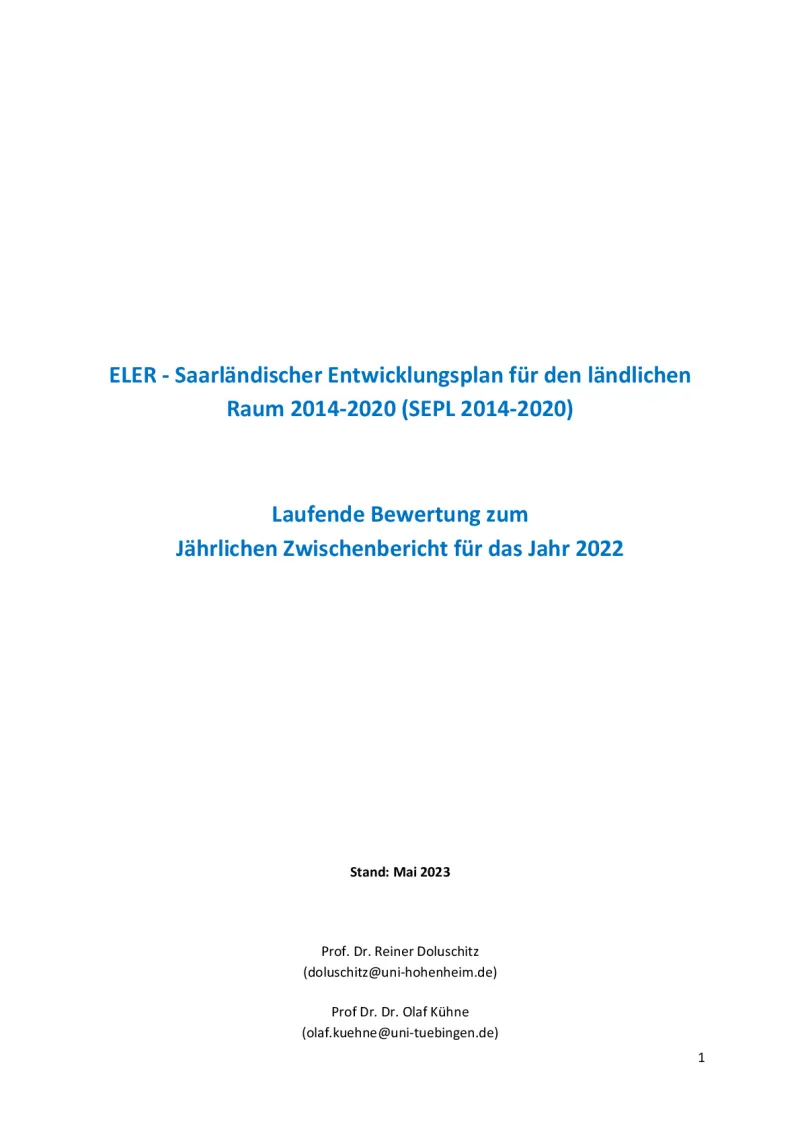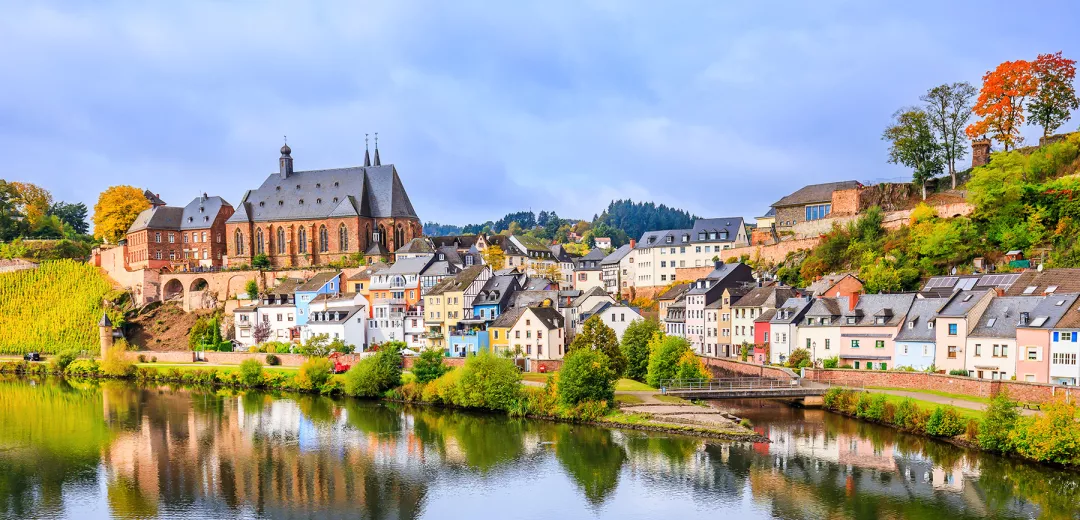Ongoing evaluation of the Saarland 2014-2020 Rural Development Programme
- Evaluation
- Food Supply Chain
- LEADER
- Long-term Vision for Rural Areas
- Jobs, Growth and Equality in Rural Areas
- Environment
- Agricultural Productivity
- Sustainability
- Evaluation
The evaluation reports on funding cases and public expenditure related to the 2014-2020 Rural Development Programme (RDP) for Saarland in Germany, which can therefore be considered a monitoring report.
- Germany
- 2014-2022
- Socio-economic impacts


Saarland's 2014-2020 RDP is subject to an annual ongoing evaluation. The evaluation is mainly based on the number of funding cases and public expenditure and is, therefore, more of a monitoring report. The change in indicator values is not reported, but the evaluation questions are answered qualitatively. All RDP measures are analysed. The evaluation is measure-specific and structured according to evaluation questions.
This evaluation for 2022 is a standard evaluation in the final phase of the programme period. It is, therefore, to be expected that no more significant changes in terms of content and finances will be made or planned. Instead, minor changes for fine-tuning and the economical and sensible use of funds have been and will be made.
The methodological approach is not explained in the evaluation report. It is clear from the report that the annual evaluation report is based on monitoring data (number of funding cases, funds spent) and that qualitative statements are made.
The statements on the measures' effects are diffused. For example, the evaluation welcomes investments aimed at expanding capacity, increasing labour productivity and improving animal welfare, but there are few clear statements on the measures' actual impact.
Most of the findings relate to the absorption of funding (e.g. diversification shows a steady absorption trend) and are not evaluation related. Moreover, the methodological basis and sources of information for the findings are not sufficiently explained. The individual measures (e.g. agricultural investment promotion, diversification and LEADER) are evaluated several times, always under a different structure. It is not clear which of the various evaluation statements is the relevant one.
The implementation of the programme developed positively in 2022, although there were pandemic and crisis-related obstacles (mainly in construction measures) in the years 2020 to 2022.
The measure-specific evaluation shows the following picture in brief:
- In the case of agricultural investment support (AFP), investments aimed at expanding capacity, increasing labour productivity and improving animal welfare are welcomed. However, an examination of the future viability of AFP is necessary.
- The compensatory allowance for less-favoured areas will be fully implemented until the end of the funding period.
- In the case of forest infrastructure funding, the reallocation of part of the funding is supported by the evaluators as no further use of funds is expected.
- The measures to increase the ecological value of the forest have meanwhile gained momentum. The promotion of biotope trees, for example, is enjoying a significant increase in demand.
- The preparation of protection and management plans for NATURA 2000 meets current social and economic conditions and has a beneficial effect on administrative efficiency.
- The progress of the organic farming measure is positive. The amount of land cultivated according to organic farming standards is steadily increasing and stabilising.
- The support measure 'soil protection liming' shows weak development.
- The acceptance and implementation of agri-environmental measures by the agricultural sector is satisfactory.
- Village renewal is a proven measure that has a significant influence on the transformation of rural settlements in Saarland. The degree of innovation in village renewal projects is limited.
- The diversification projects (e.g. horse boarding, farm holidays and self-marketing) make almost full use of planned funding.
- After a concept-related cautious initial phase, the implementation of LEADER is now running smoothly.
Author(s)
University of Hohenheim and the University of Tübingen